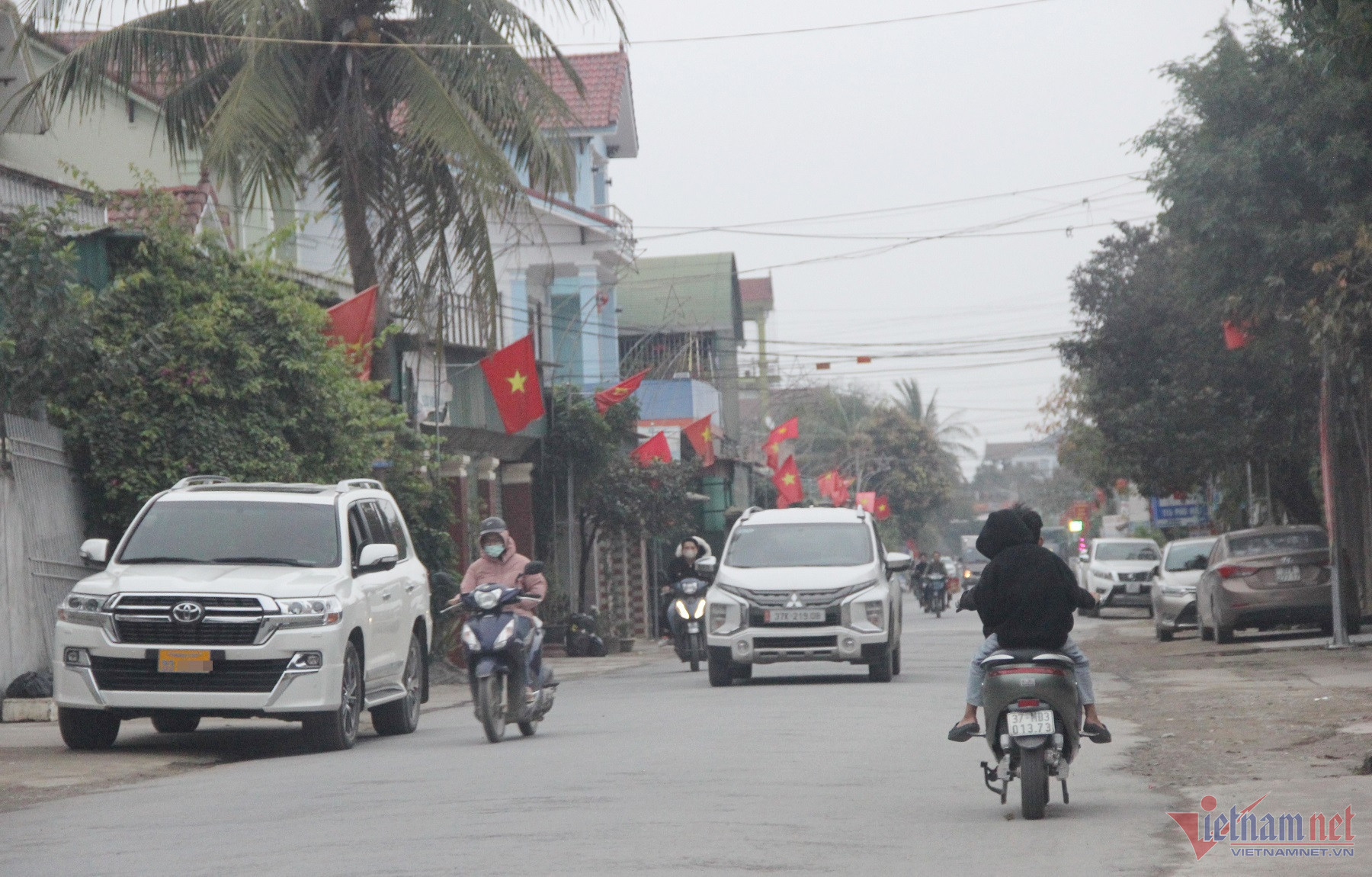
In the 1990s and earlier, Dien Thap was among the poorest communes in the province with most residents living on field work and having a low income.
To improve their lives, local people tried every possible job and many became scrap dealers. At first, they just collected discarded items in neighboring communes. Later, they went to districts in the province, and then traveled throughout the country.
When domestic supply declined, people left the village for Laos to earn their living. Some people said scrap prices in Laos are low, which prompted villagers to flock there. At first, they used motorbikes, and later, cars to deal in scrap trading.
After many years of working hard, many well-off households in Dien Thap commune appeared. They have built multi-storey houses.
The name of "scrap commune" has become familiar for locals.
The owner of D.L. scrap facility said her family was in very difficult condition and the scrap trade helped them have a new life.
At first, she and her husband traveled everywhere by bicycle to collect discarded things. Only after many years of working hard did their condition improve. Her family operates a facility which provides household appliances such as pots, bowls and plates.
“Our goods are carried by truck to Laos for sale. After selling out all products, they (sellers) come back to Vietnam and carry goods to Laos again,” she said.
A report found that Dien Thap commune has 1,100 traders in Laos and more than 300 workers in other countries, 25 sale agents, and 75 trucks with a workload of 2.5 tons or more.
Since many households are well off, they have replaced their old houses with spacious multi-storey houses, including five large villas. The average income per capita of Dien Thap’s people is VND70 million and many dong billionaires have appeared.
According to Tran Xuan Thuy, head of Hamlet 1, there are 380 households in the locality, and 100 vehicles of different types, from passenger buses to trucks to sedans.
“Previously, many locals earned their living by collecting scrap for resale. The business was small at first, but expanded to Laos. Some households have set up legal entities,” Thuy said.
Meanwhile, Dien Thap commune chair Dau Xuan Manh said there are 1,000 vehicles, which means there is one car for every two local households in the locality with 1,900 households and 7,000 household members.
Viet Hoa